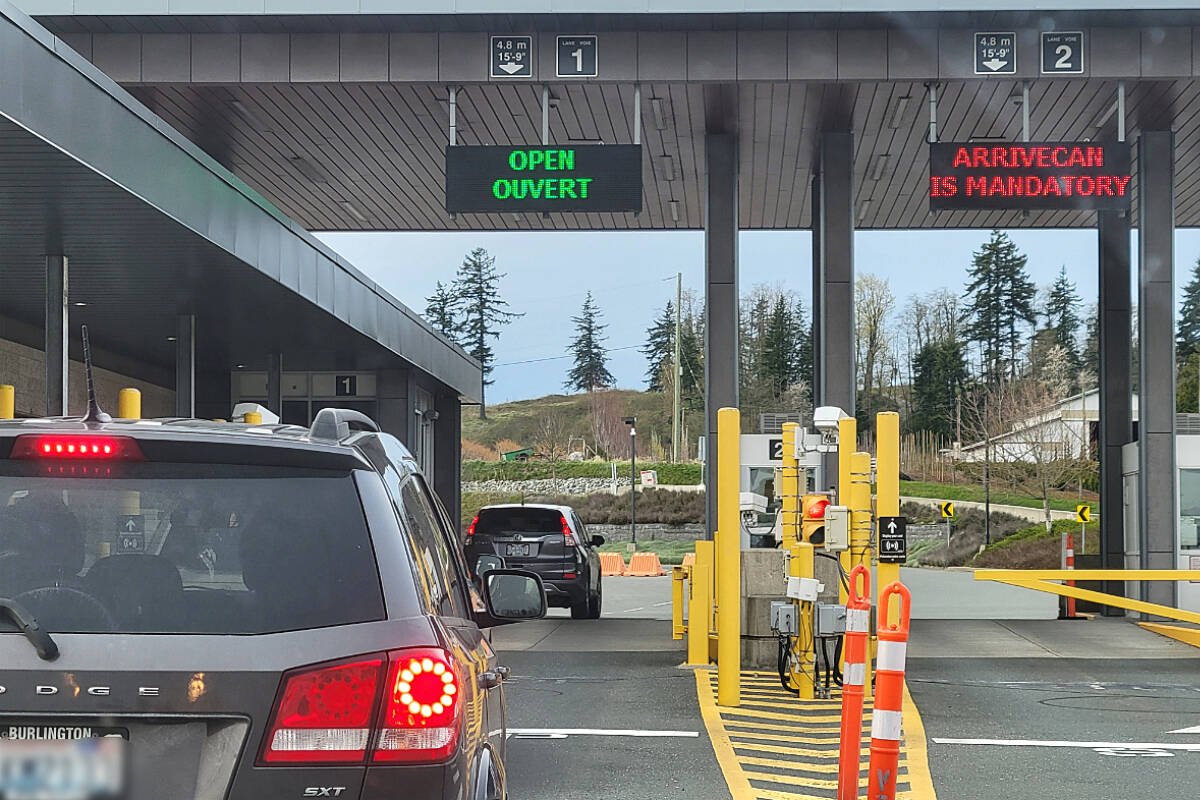A man who tried to claim a $10,000 boat was a gift when crossing the U.S.-Canada border at Aldergrove will not get a refund on the $5,700 fine he paid, a federal judge has ruled.
On May 28, 2022, Rod Verdie crossed the border in to Canada from Washington State, towing a boat.
Asked if he had anything to declare, Verdie showed the Canada Border Services Agency (CBSA) officer a bill of sale, indicating he had received both the boat and trailer as gifts, and estimated they had a total value of about $2,000.
Officers looked into the matter, and a quick online search using the boat’s registration number turned up an ad offering it for sale for $11,250 US.
Challenged with that information, Verdie “became lost for words,” the officer said.
The officer asked Verdie for proof of payment, and Verdie used his phone to show them bank records, including a transfer to the boat’s seller in the amount of $10,250 US.
READ ALSO: Man who ran into glass door at Langley rec centre has lawsuit dismissed
READ ALSO: Fear of bears, cougars forced B.C. man to use Uber, Langley lawsuit claims
The CBSA seized the boat, and released it back to Verdie after he paid 55 per cent of its assessed value – $5,779.87.
Verdie appealed the cost of the amount he had to pay to get his boat back, but a Ministry of Public Safety delegate decided that the penalty was appropriate. They noted that Verdie had admitted to having tried to evade paying duties and taxes.
Verdie then requested a judicial review of the Ministry delegate’s decision, which led to a federal court hearing before Judge Elizabeth Walker in Vancouver on July 20 this year. Opposing Verdie was the Ministry of the Attorney General of Canada.
Walker noted that Verdie now requests the entire sum of $5,779.87 be returned, and claims that the $10,250 he transferred was “not related to the boat,” and that in any case, he hadn’t sent the money before returning to Canada.
Walker found that Verdie’s arguments were “not persuasive.”
“There is no merit in the proposition that a postponement of payment, whether intentional or not, avoids the requirement to pay customs duties and taxes under the Customs Act,” Walker wrote in her ruling.
However, Walker found that even if his argument had been persuasive, her court ultimately did not have jurisdiction – Verdie had challenged the fine using the wrong court procedure, and could not use a judicial review to overturn the CBSA penalty.
Verdie, who was acting as his own lawyer in the hearing, will not get back any of the $5,779.87, and he also has to pay $500 in court costs.
Have a story tip? Email: matthew.claxton@langleyadvancetimes.com

